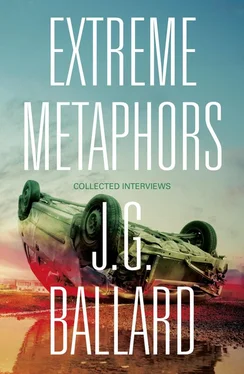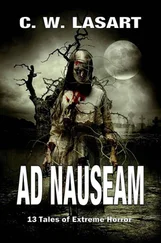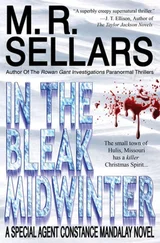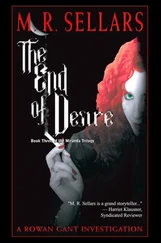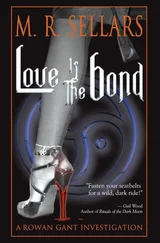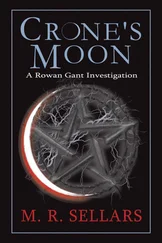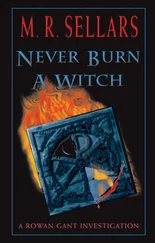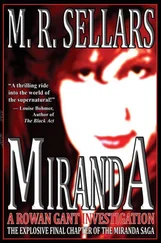BALLARD: I believe that SF is important because it is the sole form of literature we have today that looks forward. All forms of literature other than science fiction are oriented towards the past. Their character is backwards-looking, whereas SF concerns itself with the future and interprets the present day in terms of the future, rather than of the past. It uses a vocabulary that is on the whole exclusively oriented towards the world of tomorrow, with all its science, its technology, and with all its developments in politics, sociology, advertising and so forth.
I have written three novels – The Drowned World , The Drought and The Crystal World – which form a trilogy dealing with the topic of time. In The Drowned World I deal with the past, and employ water as the central metaphor. In The Drought I deal with the future, taking sand as the central image. In The Crystal World I am concerned with the present, the symbol of which is the diamond or the precious stone which – so I believe – possesses a timeless structure.
In The Drowned World I describe the return of the entire planet to the era of the great Triassic forests, which covered the earth some 200 million years ago. I tell how human beings likewise regress into the past. In a certain sense, they climb down their own spinal column. They traverse down the thoracic vertebrae, from the point at which they are air-breathing mammals, to the lumbar region, to the point at which they are amphibious reptiles. Finally they reach the absolute past, which on one hand represents the birth of life itself in the hot womb of the primeval jungle, and which in another sense represents their own origins and birthplace in the mother’s womb. I show humanity face to face with the difficulty of making sense of this decline in their status to non-entities.
I use this portrait of the spinal column as a vessel containing a reflection of the memory of the past, and the details of the entire evolutionary development of the human race, as a literary device, as I was dissatisfied with the traditional forms used by SF writers to realise time travel. It seems to me that the method of investigating the imaginative capacities of the central nervous system gives a more reliable and more precise account of how the human race has evolved in time, and of how we as individuals have evolved in our own time, than Wells’ time machine.
In my novel The Drought , I see the future as a world dominated by sand. It is the end of the planet, and the few people who survive on the planet are governed by perfectly abstract relations, through an entire geometry of space-time, of emotion and action. It is a completely abstract world, as abstract as the most abstract of painters or sculptors one can imagine.
I believe that SF will become more and more an aspect of daily reality. It has migrated from the bookshelf to daily life. One sees the landscapes and imagery of SF, one sees their contents playing a part in the world of pop music, of film, even that of psychedelic experiences. The reason being, that SF was always concerned with psychological perceptions, and the world of pop music, film and psychedelic experience is now greatly concerned with the senses, with perspectives of our own psychological space-time, and has not so much to do with questions of individual histories, the past and so forth, as were the prejudices of the literature and cinema of the past.
I believe that in the last ten years the entire basis of SF has changed rapidly. Modern SF began at the end of the 1920s and the beginning of the thirties, and was at that time an authentically vernacular vision of the future, a future seen through the lens of science and technology and, above all, in the light of outer space, so I believe. Now in the last ten years SF as I see it has turned full circle. The physical sciences now play less of a major role than do the biological, inner space, the world of the mind – which once more reflects the altered attitudes of people towards science in general. After Hiroshima, the whole magic and authority of science was called into question. Now, I don’t think that the authority of biologists was attacked to such an extent, and to a considerable degree the biologist and the psychologist took over something of the functions of a lay church, in exploring man’s place in the universe.
I define inner space as an imaginary realm in which on the one hand the outer world of reality, and on the other the inner world of the mind, meet and merge. Now, in the landscapes of the surrealist painters, for example, one sees the regions of inner space; and increasingly I believe that we will encounter in film and literature scenes which are neither solely realistic nor fantastic. In a sense, it will be a movement in the interzone between both spheres.
1968: Jannick Storm. An Interview with J.G. Ballard
Originally published in Speculation 21, 1969
Jannick Storm, a Danish publisher and writer, visited London in the late 1960s and became involved with the key players in the British New Wave of science fiction. He had a short story published in Michael Moorcock’s New Worlds and in 1970 founded Denmark’s first fanzine, Limbo , inspired by New Worlds . Storm was close to New Wave figurehead Brian Aldiss, who dedicated his book Billion Year Spree to him, and to Ballard. Throughout the sixties, Storm translated many of the individual Atrocity Exhibition pieces for Danish publications almost as soon as Ballard had written them. Subsequently, he was responsible for the world first edition of The Atrocity Exhibition , convincing Rhodos of Copenhagen to publish Grusomhedsudstillingen (1969), Atrocity in Danish, with Storm’s translations.
The following interview was conducted at Shepperton on 5 July 1968. It was originally recorded for a Danish radio programme on science fiction, and the transcript appeared in Peter Weston’s fanzine Speculation in 1969. It covers Ballard’s thoughts on the New Wave, his experiments in graphic design, his admiration for the work of William Burroughs, the media landscape of the sixties and, as a controversial parting shot, his withering views on science fiction fandom. The latter got Ballard into hot water with Speculation readers who took umbrage in hostile letters to the editor, in turn provoking Ballard to tell Weston he no longer wished to receive further copies of the ’zine. Weston lamented this in a later editorial, although Moorcock leapt to Ballard’s defence in Speculation 25: ‘I sympathise with Jimmy Ballard’s remarks, and, at times, find myself close to agreeing with them.’ [SS]
STORM:How did you start writing?
BALLARD:I was studying medicine at Cambridge University. I was very interested in medicine, everything I learned there I put to very good use. All the anatomy and physiology and so on. It seemed an enormous fiction. They have an annual short story competition at the University, and I wrote a story for that and won the competition that year. I suppose that was a green light, so I gave up medicine, and after a few years I had my first story published. I’d tried originally to write stories for English literary magazines like Horizon and that sort of thing. Just general fiction of an experimental character. And then I thought that science fiction, which in those days was all Asimov and Heinlein and Clarke – this was in the middle fifties – I thought, those writers were not really making the most of what science fiction could be. I felt that a new kind of science fiction should be written.
Читать дальше
